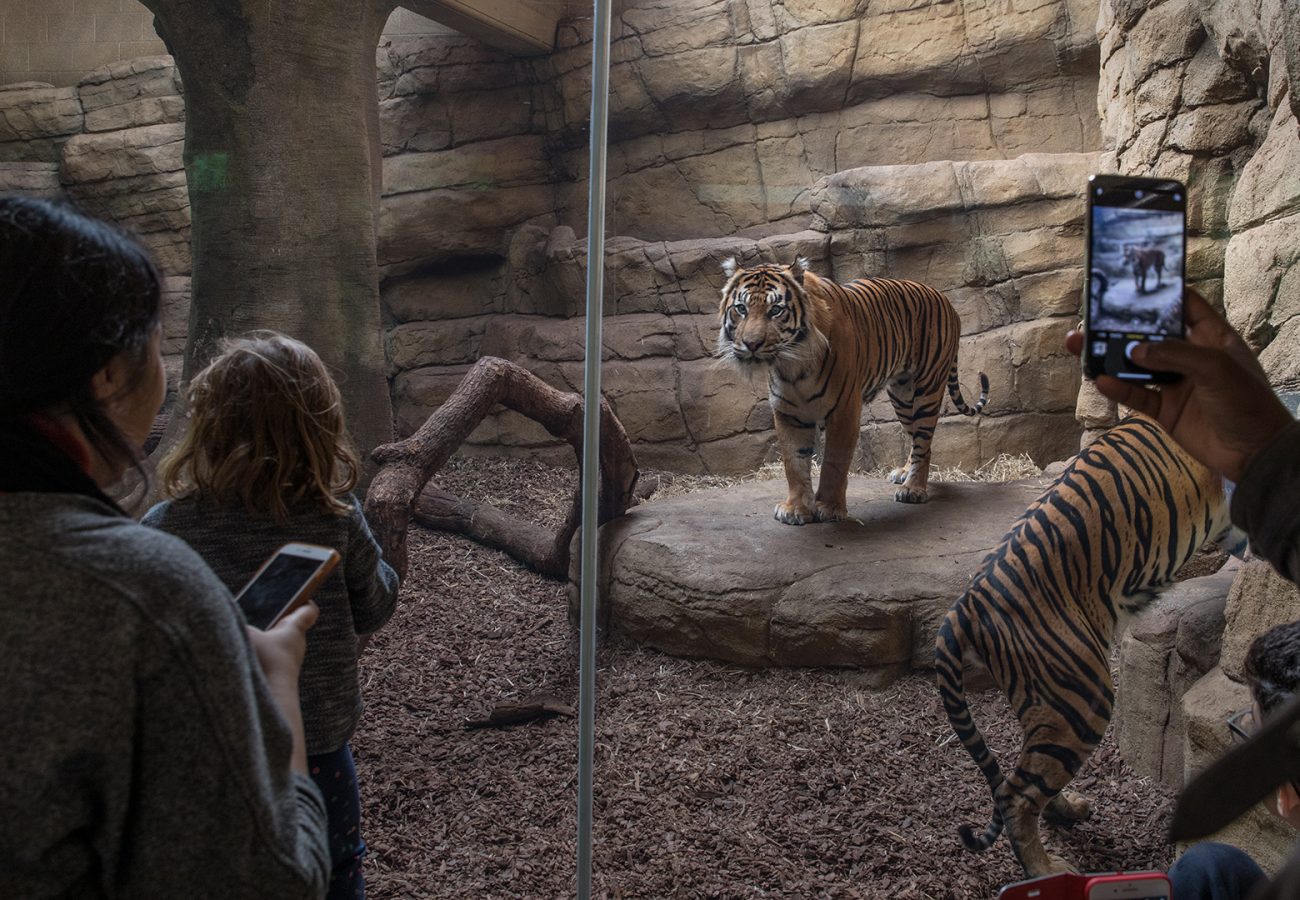Big cats are clawing at the cages in UK zoos – together, let’s end this suffering
Our new appeal and ground-breaking report call for an end to the exploitation of big cats in zoos, and a ‘Roar-Free UK’.

© J McArthur
Beloved and revered the world over, big cats are commonly displayed in zoos and other wild animal exhibits because of our desire to see them in the flesh, despite the toll this takes on the animals. Over 3,000 big cats currently languish in UK and European zoos, as living exhibits, including lions, tigers and leopards. Their natural instincts denied, their space restricted, with no hope of freedom.
Born Free believes strongly that big cats do not belong in zoos, and that’s why today, we’ve launched an urgent new appeal to bring this suffering to an end, and published a ground-breaking report: Clawing at the Cages: The Problem with Keeping Big Cats in Zoos.
Our investigations have revealed widespread signs of prolonged suffering, including abnormal, ‘stereotypic’ behaviours amongst captive big cats, and conclude that despite claims from the zoo industry, keeping big cats in zoos serves no conservation purpose.
We are calling for fundamental reform and are urging the UK government to stop the continued breeding of big cats – who will never be able to live a natural life in the wild, and may even be culled – whilst phasing out the keeping of big cats in zoos for good.
With your help, we can end the exploitation of big cats in zoos and create a Roar-Free UK.
DONATE TODAY SIGN OUR PETITION FOR A ROAR FREE UK
Key findings from our report include:
 The average enclosure size of big cat species in European zoos was found to be over 40,000 times smaller than their reported median home range in the wild.
The average enclosure size of big cat species in European zoos was found to be over 40,000 times smaller than their reported median home range in the wild.- Zoos fail to provide adequate environments for big cats, including lack of space, lack of opportunities to perform natural behaviours, and the lack of ability to hide from public view.
- Stereotypical behaviour is commonly observed, particularly in the form of pacing and route tracing.
- Limited genetic diversity and the lack of development of natural behaviours make the majority of big cats in zoos unsuited for release to the wild. Ongoing breeding programs contribute almost nothing to conservation as a result, and only serve to “re-stock” zoos with animals.
Dr Mark Jones, Born Free’s Head of Policy, said: “Big cats are among the most awe-inspiring animals on earth – yet the zoo industry continues to exploit and humiliate them for our entertainment. It’s high time to bring the suffering of big cats in zoos to a permanent end.
“For this reason, we are urging the authorities and the zoo industry in the UK, Europe and beyond to phase out the keeping of big cats, starting with a ban on further breeding. In the meantime, every effort must be made to improve the lives of those animals who are already held in zoos, by providing them with as much space as possible in species-appropriate social groupings, enriching their enclosures, and ending inappropriate and dangerous visitor ‘experiences’.”
Dame Virginia McKenna, Born Free Co-Founder & Trustee, said: “My heart aches to think of the thousands of individual big cats suffering in zoos. This compelling report starkly outlines why these remarkable, powerful predators should live freely where nature intended, not caged so we can be ‘entertained’. In Born Free’s 40th anniversary year, we challenge the multi-billion-pound global zoo industry to stop breeding animals who have no chance of freedom, and I ask the public to help us keep wildlife in the wild, where it belongs.”
Please support our appeal for a Roar-Free UK today, by donating below or signing our petition.

